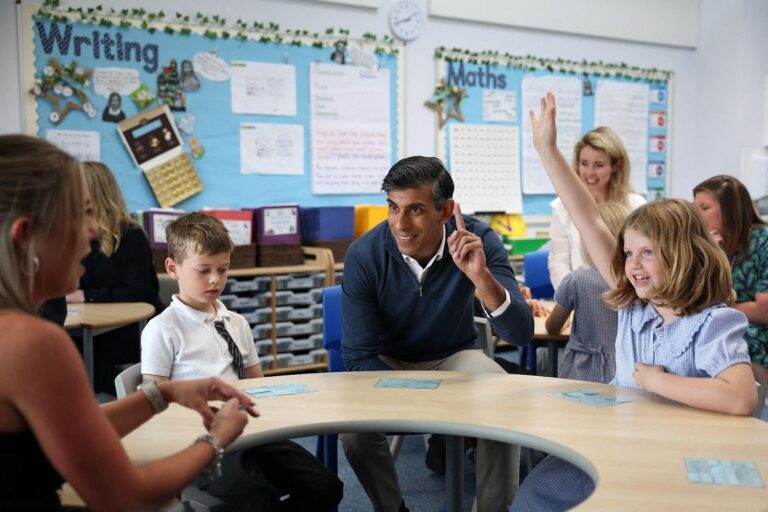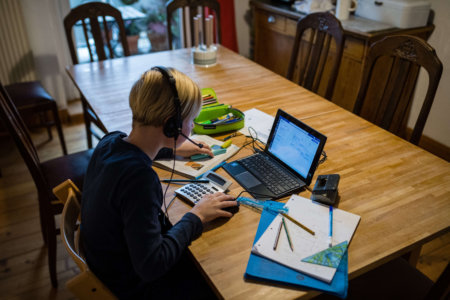
What’s the most crucial asset children have? Their brains.
And yet, we’re not caring for children’s brains the way we care for their bodies, especially in early childhood, when what we do — or fail to do — has a significant impact on their futures.
Early childhood is a crucial period for cognitive development, characterised by rapid brain growth and the formation of neural connections at an astounding rate. During this time, the foundation for learning, behaviour, and health is established.
Cognitive development refers to how children think, explore, and figure things out. It involves the development of knowledge, skills, problem-solving abilities, and dispositions that help children think about and understand the world around them. Brain development is also part of cognitive development.
At birth, the average baby’s brain is about a quarter the size of an adult brain. It doubles in size within the first year, reaching about 80% of adult size by age three and 90% — nearly full-grown — by age five.
This rapid growth is driven by the creation of neural connections, which occur at a rate of 700 to 1,000 per second in these formative years. These connections are the building blocks of a child’s cognitive abilities, shaping everything from motor skills and language to communication, cognitive functions, and social-emotional skills.
The science behind early cognitive development
Just as a house needs a sturdy foundation, the brain requires a strong base to support all future learning, behaviour, and health.
According to the Center on the Developing Child at Harvard University, the brain’s architecture is built over time, beginning before birth and continuing into adulthood. Early experiences, both positive and negative, heavily influence this development.
Positive experiences, such as responsive caregiving, stimulating activities, and safe environments, strengthen brain architecture, while negative experiences, such as neglect or toxic stress, can weaken it.
Recent advances in neuroscience and psychology have provided deeper insights into how cognitive development unfolds during early childhood. The brain’s plasticity, or its ability to change and adapt in response to experiences, is at its peak during these early years.
According to a study by Kuhl PK, Tsao FM, and Liu HM, the early years are a period of heightened plasticity when the brain is most receptive to environmental influences.
This makes early intervention and enrichment crucial. For example, talking, reading, and playing with children can significantly enhance their language and cognitive skills.
Early stimulation nurtures neural connections and supports overall brain development, ensuring children have the cognitive foundation for future learning and success.

The science of early cognitive development examines how rapid neural connections, shaped by genetics and environment, support learning and memory in a child’s first years. Source: AFP
Factors influencing cognitive development
It goes without saying that as early childhood is a period of growth and development, the actions taken during this time have lasting effects.
Several factors influence cognitive development in early childhood, including nutrition, environment, and social interactions. Understanding these factors can help create optimal conditions for your child’s brain development.
Nutrition
Adequate nutrition is essential for brain development. The World Health Organisation (WHO) emphasises that malnutrition during the first 1,000 days of life — from conception to the child’s second birthday — can cause irreversible damage to brain development.
Breastfeeding, in particular, has been shown to provide essential nutrients and antibodies that promote brain growth and cognitive function.
Environment
Drawing from extensive studies, Early Years experts advocate for a play-based learning environment as the most effective way to engage young children and prepare them for a lifetime of curiosity.
According to the American Academy of Pediatrics, engaging in appropriate play with parents and peers can promote social-emotional, cognitive, language, and self-regulation skills that build executive function and a prosocial brain.

The environment plays a crucial role in influencing cognitive development by providing stimuli, learning opportunities, and social interactions that shape a child’s intellectual growth and abilities. Source: AFP
Social interaction
Human interaction is critical for cognitive growth. Vygotsky’s social development theory posits that children learn through social interactions with more knowledgeable others, such as parents and teachers.
These interactions help children develop higher-order thinking skills and language abilities. Studies also show that children who engage in regular, meaningful interactions with caregivers and peers have better cognitive and language skills.
Stress
Chronic stress can be detrimental to brain development.
The National Scientific Council on the Developing Child explains that prolonged exposure to stress hormones, such as cortisol, can damage brain architecture and impair cognitive functions.
Creating a stable, nurturing environment can help mitigate these effects and promote healthy brain development.
The role of early education in cognitive development
Quality early childhood education
Access to quality early childhood education (ECE) programmes is associated with improved cognitive outcomes.
Studies have shown that children who attended a high-quality preschool programme had higher IQ scores, better academic performance, and greater economic success in adulthood compared to those who did not.

Play-based learning helps children grow by letting them explore and learn through fun activities. Source: AFP
Play-based learning
Play is a fundamental component of cognitive development.
Provide a safe and stimulating environment where your child can explore and play. Toys and activities that promote problem-solving, creativity, and fine motor skills, such as building blocks and puzzles, are excellent for cognitive development.
According to the American Academy of Pediatrics, play-based learning promotes creativity, problem-solving, and social skills. Programmes that emphasise hands-on, playful learning experiences, such as Montessori and Reggio Emilia, have been shown to support cognitive development effectively.
Parental involvement
Active parental involvement in a child’s education enhances cognitive outcomes.
A study published in the journal “Child Development” found that children whose parents were actively involved in their education had higher academic achievement and better cognitive skills.
This involvement can include activities such as reading together, helping with homework, and participating in school events.
At the same time, excessive screen time can hinder cognitive development. The American Academy of Pediatrics recommends limiting screen time for children under two years old and ensuring that older children balance screen time with physical activities and social interactions.









